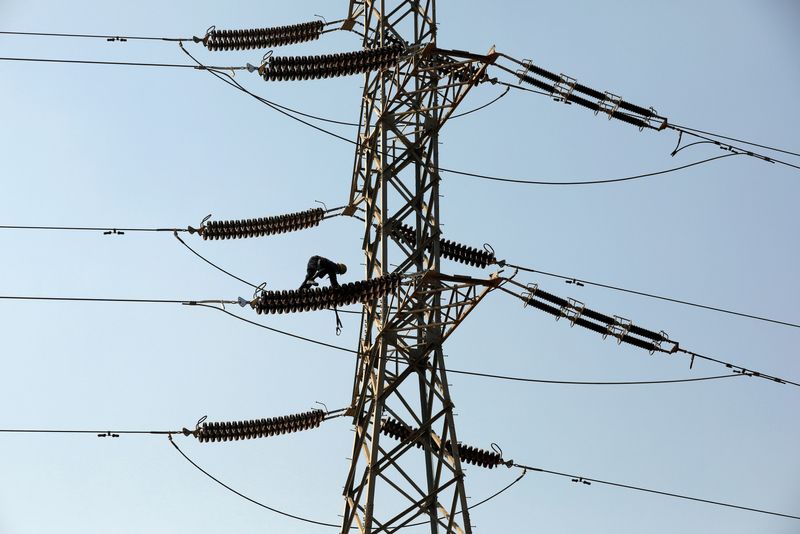
By Gibran Naiyyar Peshimam and Ariba Shahid
KARACHI (Reuters) – Pakistan is renegotiating contracts with independent power producers to rein in “unsustainable” electricity tariffs, the head of the power ministry said, as households and businesses buckle under soaring energy costs.
Rising power tariffs have stirred social unrest and shuttered industries in the $350 billion economy, which has contracted twice in recent years as inflation hit record highs.
“The existing price structure of power in this country is not sustainable,” Awais Leghari, a federal minister heading Pakistan’s Power Division, told Reuters in an interview on Friday.
He said discussions were under way between power producers and the government because “there is a clear understanding on both sides that the status quo can’t be maintained.”
Leghari stressed that all stakeholders would have to “give in to a certain point” – though without compromising completely on business sustainability – and this would have to be done “as soon as possible”.
Faced with chronic shortages a decade ago, Pakistan approved dozens of private projects by independent power producers (IPPs), financed mostly by foreign lenders. The incentivised deals included high guaranteed returns and commitments to even pay for unused power.
However, a sustained economic crisis has slashed power consumption, leaving the country with excess capacity that it needs to pay for.
Short of funds, the government has built those fixed costs and capacity payments into consumer bills, sparking protests by domestic users and industrial associations.
Four sources in the power sector told Reuters changes to contracts demanded included slashing guaranteed returns, capping dollar rates and moving away from paying for unused power. The sources requested anonymity as they were not authorised to speak to the media.
On Saturday, local media outlet Business Recorder said in a report citing sources that 24 conditions have been proposed for the transition of capacity based model to take-and-pay model.
However, Leghari told Reuters that no new draft agreements or specific demands had been officially sent to power companies and said the government would not force them to sign new watered down contracts.
“We would sit and talk to them in a civil and professional manner,” he said, adding that the government has always maintained contractual obligations to investors, both foreign and local. He said contract revisions would be by “mutual consent”
Energy sector viability was the focus of a critical staff level pact in May with the International Monetary Fund (IMF) for a $7 billion bailout. The IMF’s staff report stressed the need to revisit power deals.
Pakistan has already initiated talks on reprofiling power sector debt owed to China as well as negotiations on structural reforms, but progress has been slow. Pakistan has also committed to stop power sector subsidies.
Leghari said current rates were not affordable for domestic or commercial consumers and this was hurting growth because power prices were no longer regionally competitive, putting critical exports at a disadvantage.

He said the aim was to bring tariffs down to 9 U.S. cents per unit for commercial users from about 28 cents currently.
($1 = 278.45 Pakistani rupees)
This post is originally published on INVESTING.



